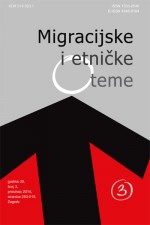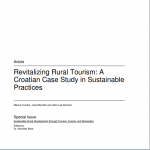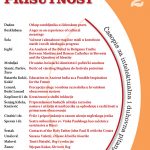
Publisher: Institute for Migration Research
Godina: 2025
The COVID-19 pandemic exposed entrenched inequities in education, particularly affecting racialized groups such as refugee and migrant youth. This article examines how emergency measures during the pandemic exacerbated existing exclusionary practices in Croatia’s education system, notably through the implementation of remote learning, which was conducted exclusively in Croatian. Drawing on interdisciplinary approaches from educational anthropology, critical race theory, and human rights law, this study unpacks the racialised dynamics of institutional neglect and oppression faced by racialized and minoritized children. Using socio-legal analysis, the authors highlight the systemic barriers to equitable education, including language exclusion, socioeconomic disparities, and lack of institutional accountability. The article also reflects on advocacy efforts, including a formal complaint against Croatia for violating the International Convention on the Rights of the Child. By situating these issues within broader societal contexts, this analysis advances understanding of the racialization of education and underscores the need for transformative, inclusive educational policy, pedagogies, and research.



